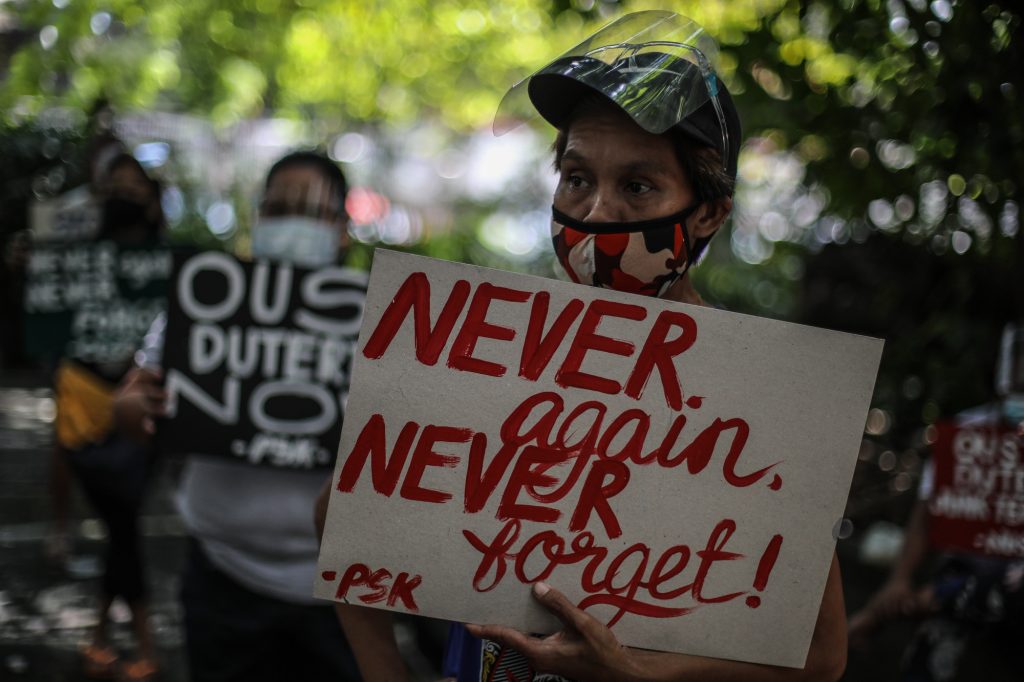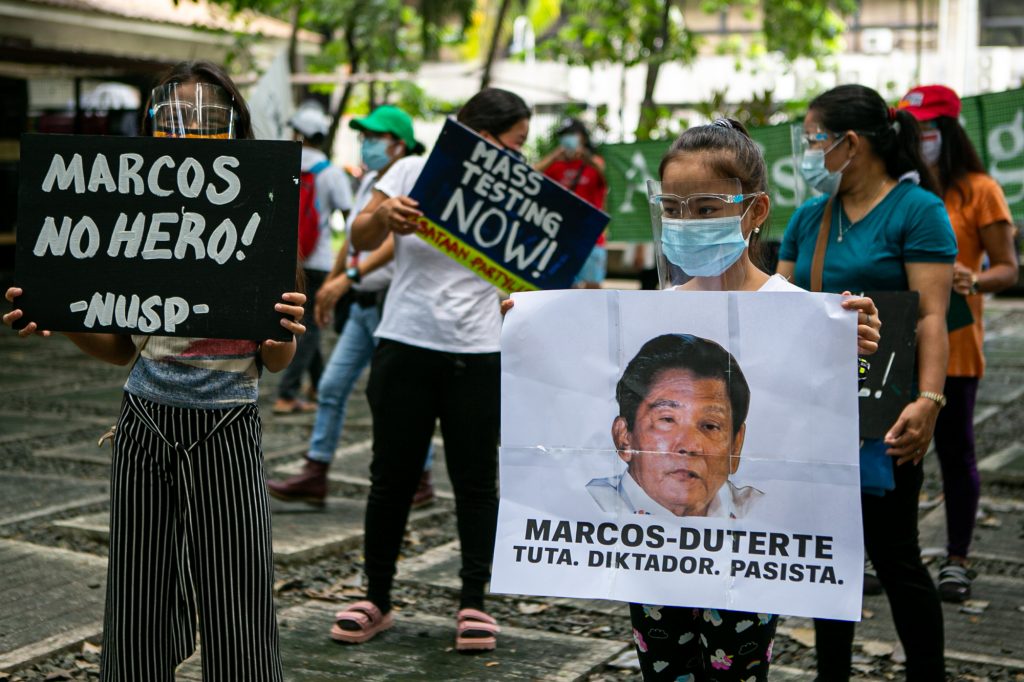
Philippine activists who experienced martial law in the 1970s led a protest rally on September 11, birth anniversary of former president Ferdinand Marcos, to condemn what they described as the current administration’s idolatry of the dictator.
More than 250 activists and martial law “survivors” staged the demonstration at the Heroes Monument in Quezon City.
Danilo dela Fuente, chaiman of SELDA, a group of former political detainees during the Marcos regime, lambasted the current government’s “attempt to rewrite history to erase the dark years of military rule.”
He said President Rodrigo Duterte is “not just following the footsteps” of the former dictator but also “worshipping Marcos by doing the same human rights abuses.”
“Thousands have already been killed, many have been forcibly disappeared, many have been illegally arrested, detained, and tortured,” said Dela Fuente.
“We are already under de facto martial law and Duterte already exceeded Marcos’ record of human rights abuses,” he added.
Marcos placed the entire country under martial law from 1972 to 1981. It was lifted on Jan. 17, 1981, but his rule lasted until Feb. 25, 1986, when he was ousted by the “people power revolution.”
Historical accounts and documentation done by human rights groups indicated that there were at least 3,257 known extrajudicial killings, 35,000 documented tortures, dozens of enforced disappearances, and 70,000 incarcerations during the Marcos regime.
Rights group Karapatan earlier reported that Duterte has already “surpassed” Marcos’ record on extrajudicial killings with more than 30,000 people killed in the government’s “war” on drugs.
In a separate statement, SELDA denounced Congress for approving a bill seeking to declare September 11 a holiday to mark the former dictator’s birthday.
“For us who were among those who stood up against Marcos’ fascist rule, Marcos’ birth date reminds us of the countless injustices and atrocities that he and his cronies had committed against the country,” read the statement.
The group said the “bloody record” of the Marcos regime “is being deodorized” by the government through its “blatant historical revisionism.”
Cristina Palabay, secretary general of Karapatan, said since Duterte came to power in 2016, “he focused on revising history and tried to present Marcos as a hero.”

In 2016, Duterte ordered that the remains of Marcos be buried in the country’s Cemetery for Heroes despite strong opposition from civic and human rights groups.
In 2017, the president issued Proclamation 310 declaring September 11 a “special non-working holiday” in Ilocos Norte to observe the birth anniversary of Marcos.
Palabay said Duterte is “a copycat of Marcos” in terms of “oppressive and repressive policies.”
She said the government’s move to glorify a former dictator is “an insult to those who sacrificed their lives and liberty” for the restoration of democracy in the country.
Rubilyn Litao of the Promotion of Church People’s Response said September 11 “is a painful reminder” for the Church community of the many church people who have been killed and disappeared during the Marcos regime.
“Let us rather celebrate this day as a Day of Remembrance for the priests, pastors, nuns, religious, and laypeople who have suffered, died, and remain missing,” she said.
Father Rudy Romano, a Redemptorist priest and leading figure in the resistance movement against martial law was among the victims of enforced disappearance during those years.
Litao said the missing priest “deserves a national holiday for his dedication to promoting peace and the Christian duty rather than Marcos.”
The Redemptorist priest was last seen on July 11, 1985, outside his convent in the central Philippine city of Cebu being snatched by unidentified armed men.
He was the executive secretary of the Coalition Against People’s Persecution and the national vice chairman of the New Patriotic Alliance.
Source: Licas Philippines
0 Comments